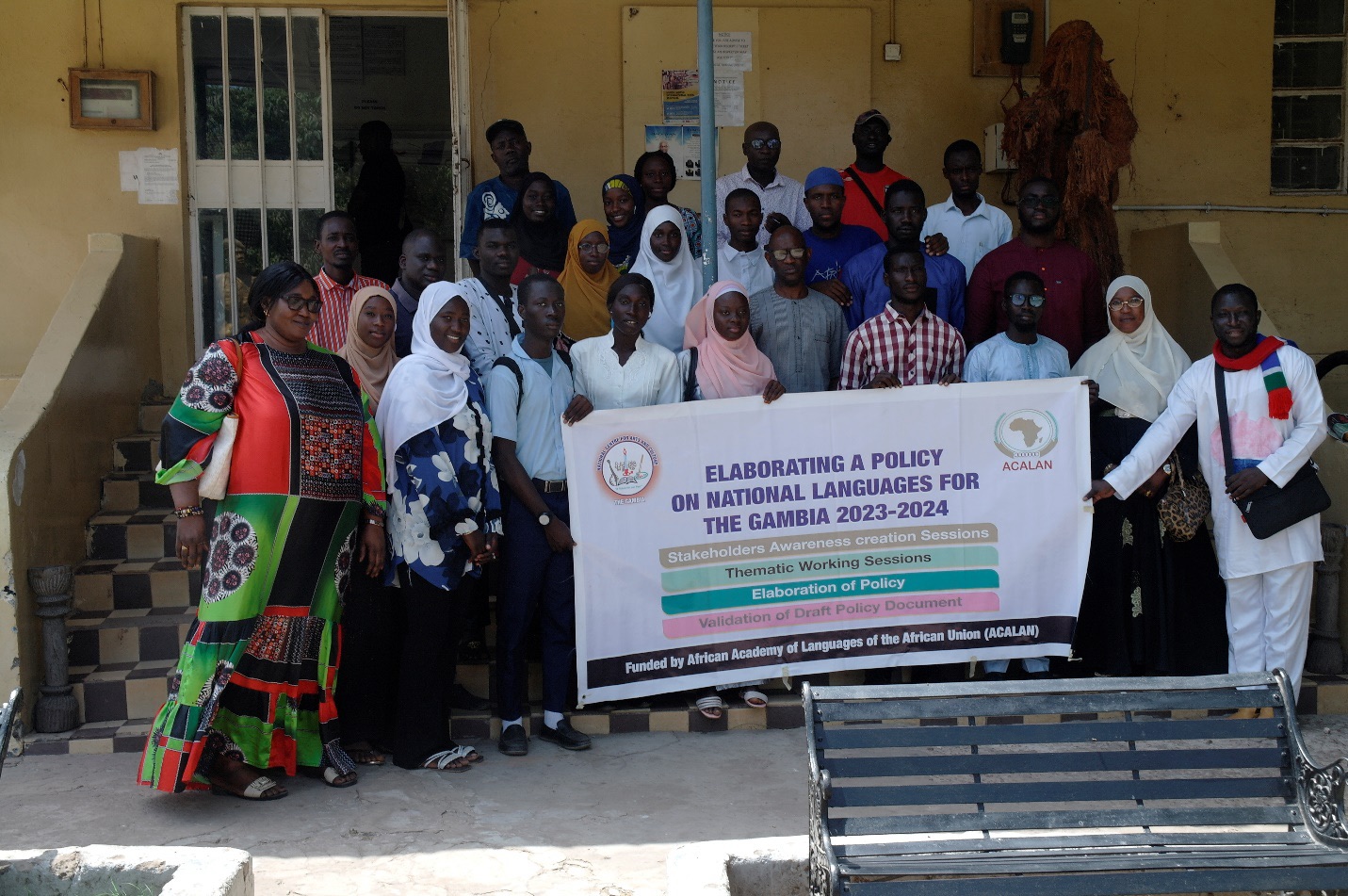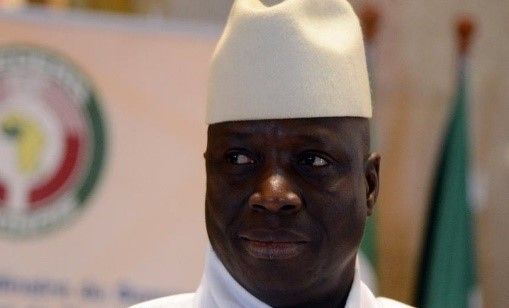By Yunus S Saliu

The National Centre for Arts and Culture NCAC in collaboration with the Africans Academic For Languages (ACALAN), on Wednesday, 24th April intensified its countrywide campaign on the elaboration of National Language Policy sensitization in Banjul.
The daylong discourse brought together different stakeholders and panelists among them are Hassoum Ceesay, DG of NCAC, Omar Drammeh – Association of Gambian Historians, Amadou Gaye -Association of Gambian Historians, Councilor Kemo Bojang – Youth Councilor, KMC, Madam HalimatouDibba – National Human Rights Council, Muhammed Bah – UTG and Alasan Njie – UTG.
Presentations from the panelists included a Historical Overview of the National Language Policy, What is not going right because of the neglect of national languages socially and economically, the role of the media in the promotion of national languages, the negative effects of the Neglect of National Languages on our Education Systems. Other topics were the political implications of the neglect of national languages on youth participation in politics, women’s under-representation as a continuous impediment to sustainable development, and how the legal sector/justice dispensation was impacted because of the neglect of national language and Gambian language and European languages – comparisons.
In his presentation on the Importance of Historical Reflection in the Elaboration of Language Policy, Hassoum Ceesay, the Director General of the National Centre for Arts and Culture, highlighted that the task of elaborating the National Language Policy will not just be less awesome but also more inspiring “because the stakeholders in the process will be imbued with the inner strength and confidence that they are indeed treading on grounds that trodden by many people before.”
DG Ceesay stated that the fact that the country is yet to have a policy on National Languages does not mean there are no efforts that have been expended in the past 100 years on such a search.
However, in his presentation, dilated on the state of languages in pre-colonial The Gambia, colonial rule, and Gambian national languages, colonial interpreter: a most coveted job! pin up pages on a tree at the village centre, KibaroMandika Newspaper 1950-1956, development of vernacular literacy, production of ‘vernacular’ literature, borrowing and Gambian languages.
Amadou Gaye, in his presentation, expounded on the effects of the neglect of national languages on the Gambia education system reminding that The Gambia was colonized by Britain, while colonialism is viewed as a socio-economic and a political practice where a more powerful nation extends her socio-economic and political dominance over a politically, socio-economically and culturally weaker people considered.
Education is central to human development, he said and continued that be it formal or informal, a good and effective education system helps in the promotion of language development.
He added that “language development and understanding requires a strong and positive level of socialization which the family plays a significant role in.”
However, “National Language is a medium of communication that is recognized and accepted by a group of people living in a particular geographical location.”
In a comparison of European and Gambian languages, AlasanNjie of EDUSA University of The Gambia said universally, it is an intellectual concession that language is the career of culture and culture is the way of life and identity of a people.
However, he noted that there are multiple languages across the world with a meager number of native speakers yet have their numerical system, alphabets, literature, and comprehensive language.
“And it is quite amazing that many of those languages have their numerical system, alphabets, and literature invented, standardized, and put under the supervision of their national language institutions that protect them from being distorted by any means.”
Meanwhile, Omar SH Drammeh made a presentation on what is not going right because of the neglect of national languages in the space of social and economic lives of the people, in line with the role of the media in promoting effective communication through the promotion of national languages.
He argued that through indigenous language, citizens active participation is ensured or denied.




